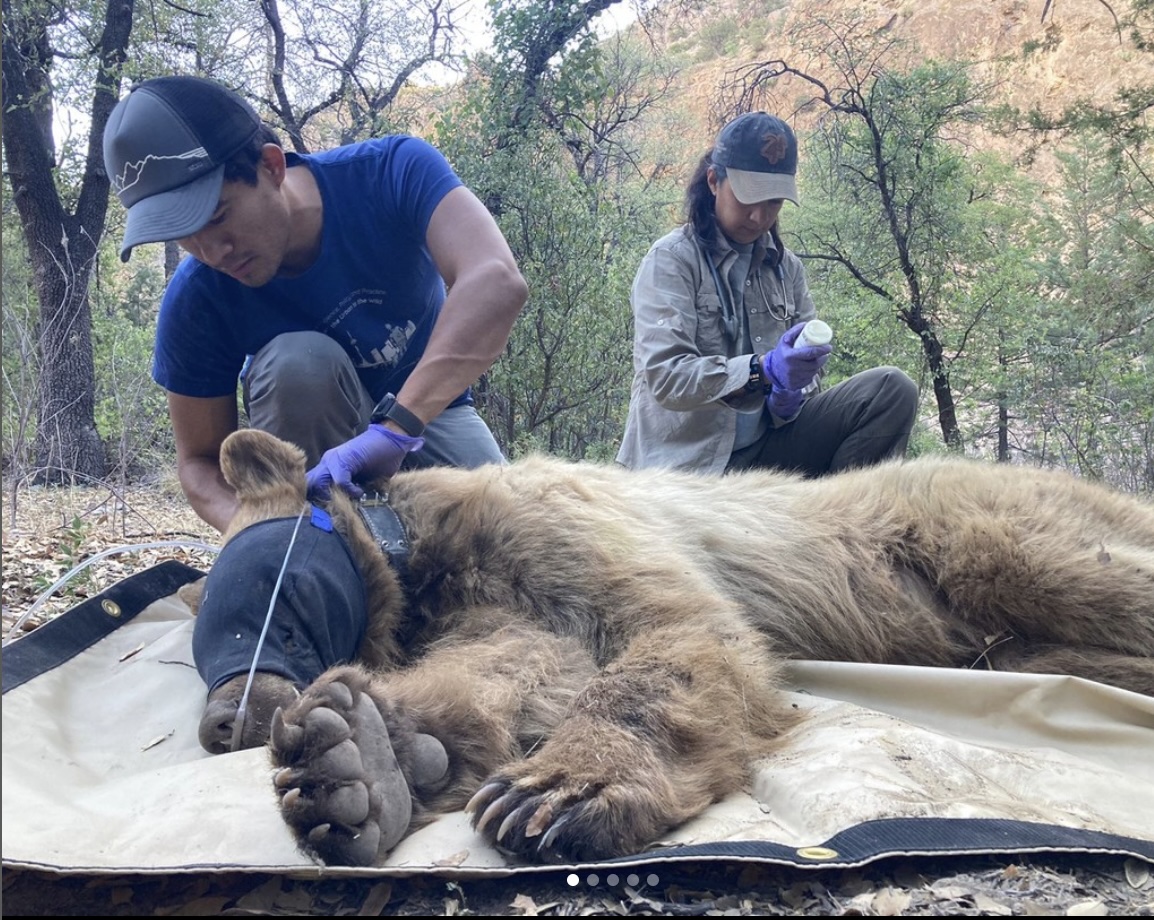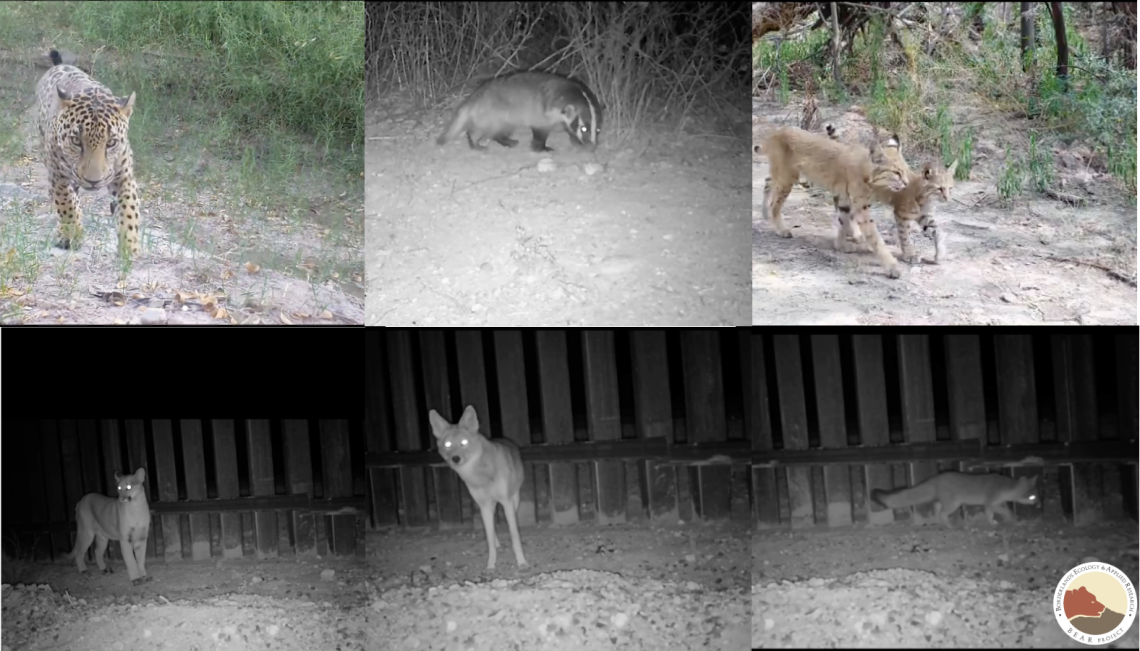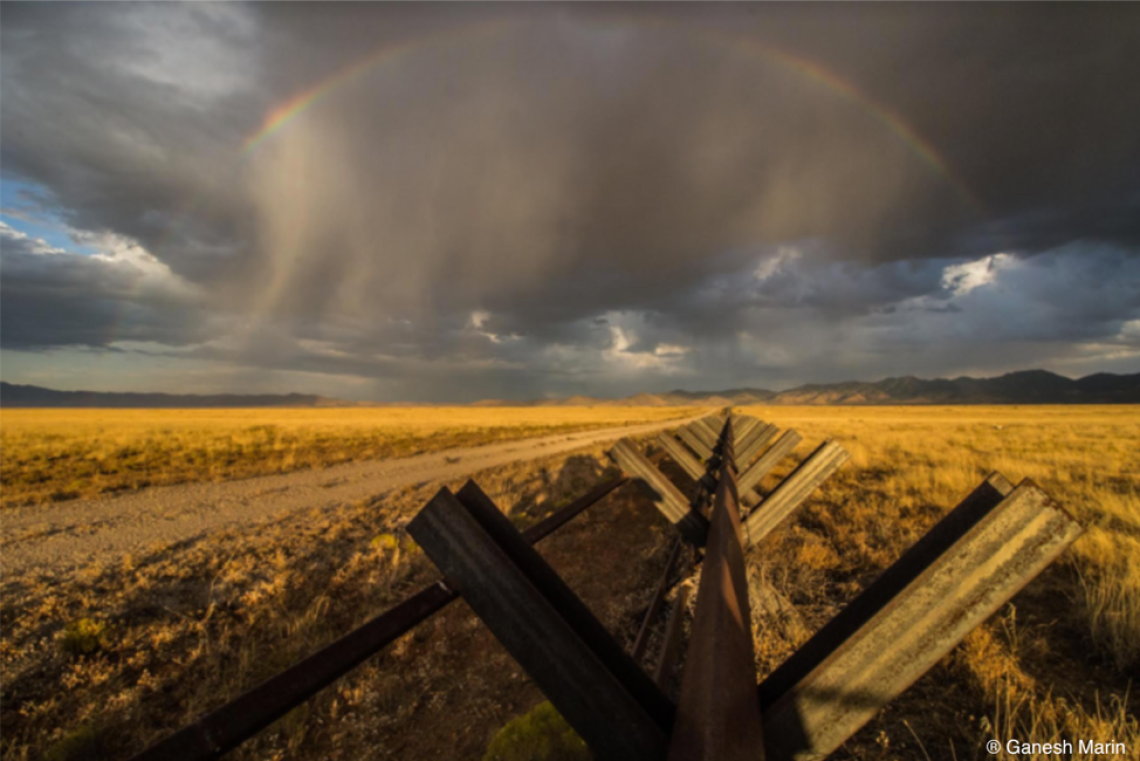Congratulations, Dr. Marín!
Satterfield_GaneshMarin.jpg

Congratulations to Ganesh Marín on his successful defense of his PhD project!
This past month, Ganesh Marín successfully defended his dissertation, wrapping up a productive fall semester for the Koprowski Conservation Research Laboratory. For his dissertation, Marín deployed wildlife cameras to study the effects of barriers on wildlife movement across the Sky Island Region. Overall, he found that habitat use of mammals was negatively affected by humans, especially larger species like black bear and deer. He also found that cottontails were negatively affected despite their small size, potentially due to selection for open habitat with high visibility to avoid predators. Cameras captured 31 species of mammals, including 3 major apex predators – jaguars, mountain lions, and bears. To better understand how these predators coexist, he examined whether their active periods overlapped, finding that bears effectively avoided the two felid species by maintaining different activity periods.
Marin_bearproject2020_mammals.png

Marín also compared wildlife camera results with eDNA techniques that allow researchers to detect DNA in water sources like streams to measure local biodiversity. Although eDNA was useful for detecting some species, wildlife cameras did a better job of capturing mammalian diversity in this arid region.
Marín’s research underscores the importance of Sky Islands and riparian areas as corridors for large carnivores like jaguars and black bears, as well as the challenges animals face crossing human structures like highways and fences. His research will be used by wildlife professionals and land managers to find ways to minimize negative effects of human infrastructure on apex predators.
Thanks to our collaborators at Cuenca Los Ojos and National Geographic for making this project possible!
Ganesh_Picture1.png


